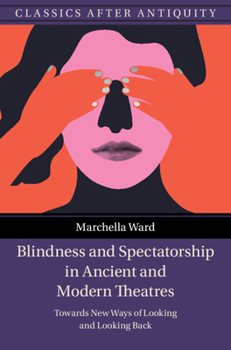Blindness and Spectatorship in Ancient and Modern Theatres
The use of disability as a metaphor is ubiquitous in popular culture - nowhere more so than in the myths, stereotypes and tropes around blindness. To be 'blind' has never referred solely to the inability to see. Instead blindness has been used as shorthand for, among other things, a lack of understanding, immorality, closeness to death, special insight or second sight. Although these 'meanings' attached to blindness were established as early as antiquity, readers, receivers and spectators into the present have been implicated in the stereotypes, which persist because audiences can be relied on to perpetuate them. This book argues for a new way of seeing - and of understanding classical reception - by offering assemblage-thinking as an alternative to the presumed passivity of classical influence. And the theatre, which has been (incorrectly) assumed to be principally a visual medium, is the ideal space in which to investigate new ways of seeing.
Format:Hardcover
Language:English
ISBN:1009372777
ISBN13:9781009372770
Release Date:December 2023
Publisher:Cambridge University Press
Length:320 Pages
Weight:1.29 lbs.
Dimensions:0.8" x 6.0" x 9.0"
Customer Reviews
0 rating





